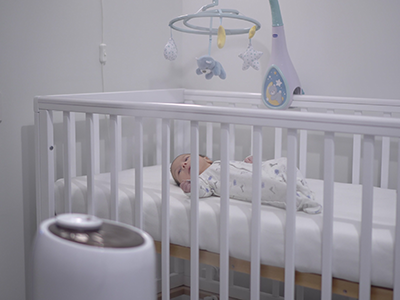The critical years of rapid growth during adolescence are an essential time to develop healthy sleep habits. Keeping the following tips in mind, parents can help their teens set a stable sleeping schedule and manage challenges posed by academic and extracurricular demands, along with uncontrollable factors such as illness, jet lag or medication. With this stability, teens can consistently get the right amount of sleep as well as fall asleep at the right time with very few problems.
- Turn off electronics one hour before bed time. Light and light-emitting devices are known to contribute to difficulty falling asleep. Leave a buffer zone of at least an hour before going to bed. Understandably, teens may have difficulty putting away their phones and other devices, so try to encourage family time, face-to-face quality time or starting a new hobby or book rather than using bright screens. When teens use their computers to do homework, there are several applications that can block out blue spectrum light which likely contributes to delayed sleep time. In the morning, open the curtains or blinds to allow morning light in the room and encourage kids to eat breakfast outside.
- Have regular sleep/wake schedules. Sleep schedule can vary for teens on weekends. There is also a tendency for teens to fall asleep later and wake up later. The best way to maintain a regular sleep wake schedule is to limit sleep on weekend mornings. Waking up later than 10 am will prevent a teen from resetting their circadian rhythm, or biological clock system, throughout the brain and body. Late sleep on weekends is called social jet-lag, and is similar to living in a different time zone on weekends and weekdays. The human circadian system does not adjust quickly, which is why it’s so hard to adjust to even one hour of time difference change. A 9:30 am wake-up time can help limit oversleeping or “catch-up” sleep during the week.
- Shorten naps. Many teens enjoy a long afternoon nap, but sleeping for more than 20 minutes can throw off their nighttime sleep schedule. A nap should not last for hours, but rather a quick cat nap– of 10-15 minutes. Once they wake, and perhaps have a healthy snack, their brain will reactivate, and learning and memory is undoubtedly enhanced.
- Know the right wake time. Wake time is the key to a successful sleep schedule. During weekdays, let your teens sleep as late as possible without being late to school. Often, parents get in the habit of waking kids earlier and earlier for school, whether it’s due to their inclination to hit snooze on the alarm, or tendency to move slowly. Give your kids fewer chances to sleep in by pushing their wake time to the absolute latest it can be. Duration and timing are the two most critical components to ensuring a stable sleep schedule and maintaining physical and mental health. Ensure that your child is waking at a consistent time, and getting the same amount of sleep each day, with a little more on the weekends.
- Eat right, eat well and exercise! What your teen consumes can certainly affect their quality of sleep. Limit morning caffeine and completely eliminate caffeine in the afternoon – including soda, coffee, tea and chocolate. Exercise is key to maintaining good health and sleep, so it’s a great idea to build a habit of exercising outdoors before school.
 https://riseandshine.childrensnational.org/wp-content/uploads/2024/12/sad-boy-at-Christmas-feature.jpg
300
400
Rise and Shine
https://riseandshine.childrensnational.org/wp-content/uploads/2017/11/childrens_riseandshine_logo.jpg
Rise and Shine2024-12-04 14:02:302024-12-04 14:04:14How to help kids avoid the holiday blues
https://riseandshine.childrensnational.org/wp-content/uploads/2024/12/sad-boy-at-Christmas-feature.jpg
300
400
Rise and Shine
https://riseandshine.childrensnational.org/wp-content/uploads/2017/11/childrens_riseandshine_logo.jpg
Rise and Shine2024-12-04 14:02:302024-12-04 14:04:14How to help kids avoid the holiday blues


 Daniel S. Lewin, PhD, DABSM is a pediatric psychologist, sleep specialist and licensed clinical psychologist. He is Board Certified in Sleep Medicine and Behavioral Sleep Medicine.
Daniel S. Lewin, PhD, DABSM is a pediatric psychologist, sleep specialist and licensed clinical psychologist. He is Board Certified in Sleep Medicine and Behavioral Sleep Medicine.


















Leave a Comment
Want to join the discussion?Feel free to contribute!